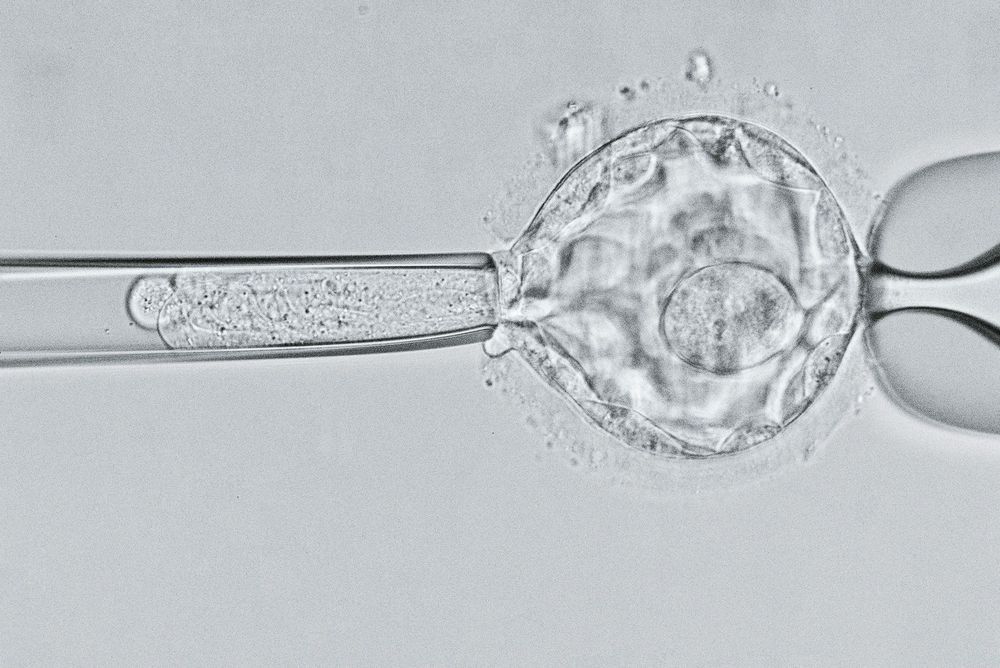Page 8744
Jun 3, 2019
The US Army’s Next Rifle May Use Facial Recognition
Posted by Shane Hinshaw in categories: futurism, robotics/AI
Jun 3, 2019
New Gene-Editing Method Could Lead To “Creation of a Super-Baby”
Posted by Shane Hinshaw in categories: biotech/medical, genetics
“The technology is similar to weapons and drugs…creation of a super-baby should be banned forever.”
The scientist behind the tech is calling for a ban.
Jun 3, 2019
Brush your teeth—postpone Alzheimer’s
Posted by Paul Battista in categories: biotech/medical, neuroscience
Researchers have determined that gum disease (gingivitis) plays a decisive role in whether a person develops Alzheimer´s or not.
“We discovered DNA-based proof that the bacteria causing gingivitis can move from the mouth to the brain,” says researcher Piotr Mydel at Broegelmanns Research Laboratory, Department of Clinical Science, University of Bergen (UiB).
The bacteria produces a protein that destroys nerve cells in the brain, which in turn leads to loss of memory and ultimately, Alzheimer´s.
Jun 3, 2019
Not Talking About Mental Health Is Literally Killing Men
Posted by Quinn Sena in categories: health, neuroscience
Jun 3, 2019
Something’s Hiding in Our Outer Solar System, But It Might Not Be Planet Nine
Posted by John Gallagher in categories: physics, space

Somewhere in the outer reaches of the Solar System, beyond the orbit of Neptune, something wonky is happening. A few objects are orbiting differently from everything else, and we don’t know why.
A popular hypothesis is that an unseen object called Planet Nine could be messing with these orbits; astronomers are avidly searching for this planet. But earlier this year physicists came up with an alternative explanation they think is more plausible.
Continue reading “Something’s Hiding in Our Outer Solar System, But It Might Not Be Planet Nine” »
Jun 3, 2019
Physicists can predict the jumps of Schrodinger’s cat (and finally save it)
Posted by Genevieve Klien in categories: particle physics, quantum physics
Yale researchers have figured out how to catch and save Schrödinger’s famous cat, the symbol of quantum superposition and unpredictability, by anticipating its jumps and acting in real time to save it from proverbial doom. In the process, they overturn years of cornerstone dogma in quantum physics.
The discovery enables researchers to set up an early warning system for imminent jumps of artificial atoms containing quantum information. A study announcing the discovery appears in the June 3 online edition of the journal Nature.
Schrödinger’s cat is a well-known paradox used to illustrate the concept of superposition—the ability for two opposite states to exist simultaneously—and unpredictability in quantum physics. The idea is that a cat is placed in a sealed box with a radioactive source and a poison that will be triggered if an atom of the radioactive substance decays. The superposition theory of quantum physics suggests that until someone opens the box, the cat is both alive and dead, a superposition of states. Opening the box to observe the cat causes it to abruptly change its quantum state randomly, forcing it to be either dead or alive.
Continue reading “Physicists can predict the jumps of Schrodinger’s cat (and finally save it)” »
Jun 3, 2019
First gene-edited babies may be at risk of early death
Posted by Genevieve Klien in category: genetics
In 2018, a Chinese researcher shocked the world by announcing the birth of two gene-edited babies. The mutations may have hurt, not helped.
Jun 3, 2019
Obesity Might Accelerate Aging
Posted by Steve Hill in categories: biotech/medical, life extension
The researchers of a new publication take a look at the effects of obesity on aging and consider its impact in the context of the Hallmarks of Aging, a popular theory that breaks down aging into nine distinct processes.
The case for obesity accelerating aging
Being overweight and carrying excessive amounts of visceral fat, a type of body fat that is stored in the abdominal cavity and surrounds a number of important internal organs, such as the liver, pancreas, and intestines, is known to increase the risk of age-related diseases.
Jun 3, 2019
Microsoft’s New Windows 10 Upgrades: A Serious Warning
Posted by Fyodor Rouge in category: futurism
Microsoft Windows 10 users, you have a serious upgrade problem which you need to know about…

















